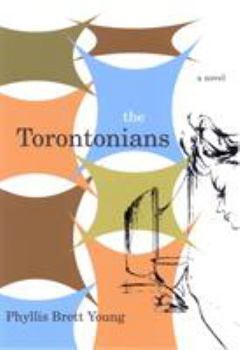The Torontonians
Select Format
Select Condition 
Book Overview
The arrival, one sunny morning, of pale green wall-to-wall carpeting for the living room is the crowning jewel in Karen Whitney's long-anticipated transformation of her house into a beautiful home, renovated to the exacting standards of her own impeccable taste. The banal finality of this event triggers an introspective voyage through the events of her life and how she became who she is: wife of business executive Rick, citizen of the suburb of Rowanwood, mother to two accomplished daughters in university. Before Betty Friedan coined the term feminine mystique, The Torontonians told a classic feminist story of suburban ennui and existential self-discovery, tracing a detailed portrait of femininity in the 1950s through the eyes of its perceptive and thoughtful heroine. The book is also a unique contemporary meditation on community and social ties from a time when Canada's major cities were just beginning to spread out into suburban sprawl.
Format:Paperback
Language:English
ISBN:0773533249
ISBN13:9780773533240
Release Date:September 2007
Publisher:McGill-Queen's University Press
Length:325 Pages
Weight:1.00 lbs.
Dimensions:0.8" x 5.5" x 8.5"
Customer Reviews
1 rating
Period Piece
Published by Thriftbooks.com User , 15 years ago
This unique novel is a period piece in a double sense. Published in 1960, it deliberately mirrors the era of Toronto's transition and expansion, for better and worse, of the late fifties. Karen, the protagonist, notices her city with remarkable insight. Various passages could be excerpted for a social history of the age and place. Remarkably, these passages are never gratuitous, but arise naturally during Karen's character development. Of upper middle-class British stock, a vexed graduate of (what sounds like) the Bishop Strachan School and (bucking her background) University College in the University of Toronto, Karen is a homemaker with a good marriage and no career. She does all her own housework with the aid of the latest electrical appliances, which liberate her to think morbid thoughts. The "electric dishwasher" is noted several times. A nagging discontent with life in her wealthy suburb (York Mills, perhaps) leads her to flirt with the idea of suicide. Too conventional and faithful for an affair, her final resolution of this quandary occurs with her husband in the roof-bar of the Park Plaza Hotel, window table (looking south) and is bound up with her view of the city. The original artwork for the cover paper shows the then-new City Hall and a martini glass. More to the point would have been a cigaret. Karen smokes incessantly, even with her doctor--in his office. Under stress, (non-alcoholic) characters drink martinis before noon. There is no great excitement here; the plot's central mystery--not Karen's--is resolved civilly and without scandal. The book had a great success in its day and deserves one now. In "The Torontonians" social history and characterization skillfully play in tandem.






